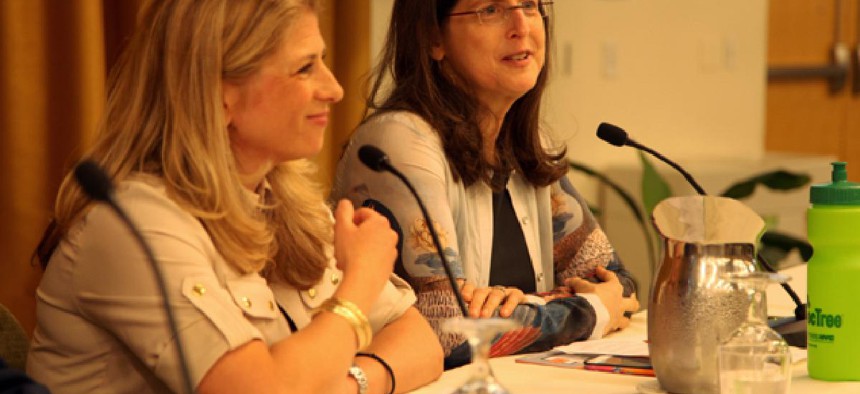Connecting the dots on nonprofit underfunding

Photo: Ali Garber
Nonprofit human services providers are on the front lines every day, addressing New York City’s most pressing social issues one resident at a time. The city relies on these organizations to provide a range of services for 2.5 million New Yorkers annually, including those related to homelessness, care for elderly residents, summer youth employment, mental health, domestic violence, and support for children in foster care. The city expects quality services.
While those who rely on these services face daily struggles, so do the organizations serving them. Just as many of the people they serve are living paycheck to paycheck, nonprofits are too often hanging on by a thread, payroll to payroll. A recent report by the Human Services Council found that in 2013, nearly 1 in 5 human services providers in New York City are operating in the red; an indication of potential closure.
Decades of chronic underfunding from government plays a major role in this fiscal crisis. Government (federal, state and city) contracts make up more than 90 percent of the budgets of most human services organizations, and typically these contracts only cover 80 percent of what it costs to run a program. Nonprofits can no longer sustain service delivery if the government doesn’t start paying the real costs of these programs.
While it is true that in New York City, the mayor and the City Council have “made unprecedented investments in human services,” they are investments that perpetuate and exacerbate the budget shortfall. Contracting for additional services, while continuing to fund them at 80 percent of cost, does nothing to halt the downward spiral that so many nonprofits currently face.
Elected officials are frustrated that things seem to be getting worse for folks in our communities, but they neglect to realize this is in part due to the fact that our partnerships with nonprofits are failing. Government contracts are underfunded, pay late, overburden providers and set up impossible demands. Nonprofits are forced to scrutinize government contracts and make tough decisions – sometimes not to take on work when it isn’t properly funded. Our communities suffer by missing out on services that nonprofits can no longer provide. We must do something to address this trend.
To bring real change, every level of government must hit the refresh button on its funding formula for contract services. Over the past year, the New York City Council Committee on Contracts held two hearings, which revealed the impact of systemic underfunding and payment delays that just add salt to the wound.
But it’s time for everyone to start connecting the dots. Administrative and overhead costs at nonprofits matter to program quality. And inflationary increases must be provided regularly to contracts if they are to maintain their value. While rents and the cost of maintenance, supplies, repairs, food, equipment and technology continue to go up, funding from government has not changed in nearly 20 years.
A simple 2.5 percent annual increase to nonprofit providers’ Other Than Personnel Services (OTPS) funding would go a long way toward addressing underfunding. For the city, the cost would be roughly $25 million and would allow organizations to invest in critical items they have not been able to invest in for years. This funding is key to closing the gap between the real costs of service delivery and payments rates, which is undermining the fiscal health of nonprofits.
We wholeheartedly support the city's agenda and are thankful that we have leaders dedicated to equity issues. However, if we don’t fundamentally shift our approach to how we do business with nonprofits, we will continue to spend the billions of dollars dedicated to social services ineffectively, wasting the nearly $5 billion the city spends on human services contracts and depriving communities of the support they need. The city budget was adopted on June 16 with no concessions on the OTPS request but we will keep pressing for this increase to be included in the upcoming fiscal year.
We cannot afford to wait any longer; we must take action to address this growing crisis now.
Helen Rosenthal is a New York City Council member representing the 6th District, and the chairwoman of the Council’s Committee on Contracts.
Allison Sesso is the Executive Director of the Human Services Council a membership association of nonprofit human services providers
NEXT STORY: Commonsense elevator safety bill will save lives
